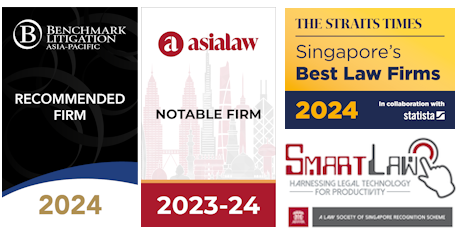11 January 2017Dharma SadasivanOn 20 December 2016, the Personal Data Protection Commission (“PDPC”) released updated advisory guidelines (the “Guidelines”) in relation to Photography, Video and Audio Recordings, including where such photographs and recordings are made with the use of drones. The updates do not stray from the PDPC’s established positions relating to the interpretation of the Personal Data Protection Act 2012 (“PDPA”). Briefly, these positions are:
Updates relating to drones The salient points of the updates relating to drones are as follows:
Commentary Where a drone is flown in a public space such as an open field, compliance with the PDPA is a non-issue because any personal data captured would be publicly available information and therefore exempt from consent requirements. Where a drone is flown in a private space, compliance with the PDPA is trickier. If all persons in the private space are guests at the event and have given their consent to the event organizers for photographs and videos to be taken, photographers and videographers working for the event organizers may document the event without worry. However if consent has not been obtained, or if there are persons in the private space who are not guests of the event and therefore have not had an opportunity to provide consent (e.g. a wedding reception in which a portion of a venue is reserved for guests and the remaining space is open to other patrons), it may be difficult for a drone operator to prevent the unintentional collection of personal data from such persons. Drone operators will therefore need to employ other ways of managing this personal data, such as promptly deleting footage or photographs containing personal data of non-guests, or designating certain areas as spaces where photography/videography will be conducted. Dharma Sadasivan Associate Director, BR Law Corporation [email protected] Post date. Edit this to change the date post was posted. Does not show up on published site. 11/1/2017 |
We're Here To HelpOur team welcome any comments or questions and will gladly assist you with your enquiry. You can call us on +65 6899 9888 or fill out our simple contact form. DisclaimerThe materials in these articles have been prepared for general informational purposes only and are not legal advice or a substitute for legal counsel. If you require legal advice for your particular circumstances, please consult a suitably qualified legal counsel. This information is not intended to create, and receipt of it does not constitute, an attorney-client relationship. You should not rely or act upon this information without seeking professional counsel. Whilst we endeavour to ensure that the information in these articles is correct, no warranty, express or implied, is given as to its accuracy and we do not accept any liability for error or omission. The authors of the articles are or were employees of BR Law Corporation at the time of publication, but may no longer be, now or in the future, in the employ of the firm. Subscribe to our NewsletterSubscribe to our quarterly newsetter to keep up to date with a wealth of insights from the BR Law, BR Family Assets and BR Corporate services team.
Categories
All
Archives
May 2024
|
BR Law Corporation
[email protected]
+65 6899 9888
Firm Brochure |
Practice AreasSubscribe to our quarterly newsletter to keep up to date with a wealth of insights from the BR Law.
|
Contact Us[email protected] Main Branch - Republic Plaza 9 Raffles Place #08-03 Republic Plaza Singapore 048619 +65 6388 1717 Telephone +65 6394 7398 Fax Branch Office - Bank of China 4 Battery Road #29-00 Bank of China Singapore 049908 +65 6899 9888 Telephone +65 6338 5377 Fax Branch Office - United Square 101 Thomson Road #26-02/04 United Square Singapore 307591 +65 6336 1717 Telephone +65 6394 7318 Fax |
Terms of Use • Privacy Statement
© Copyright 2018 BR Law Corporation. Registered in Singapore (UEN: 200312051N).
© Copyright 2018 BR Law Corporation. Registered in Singapore (UEN: 200312051N).


 RSS Feed
RSS Feed

Leave a Reply.